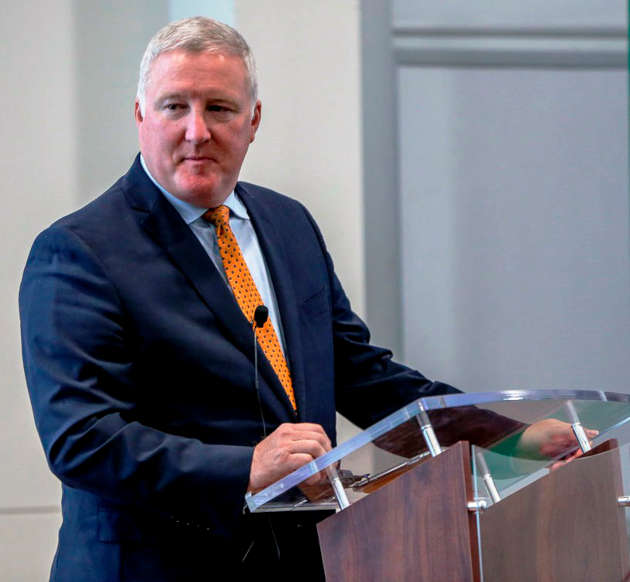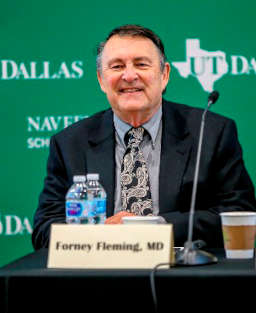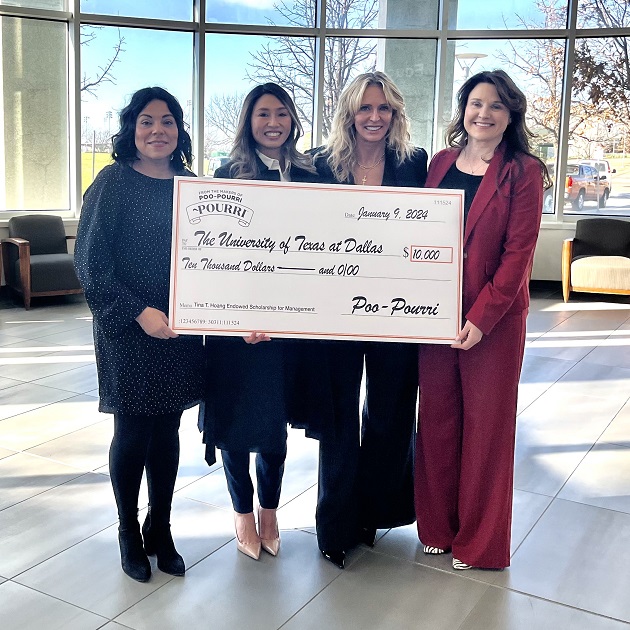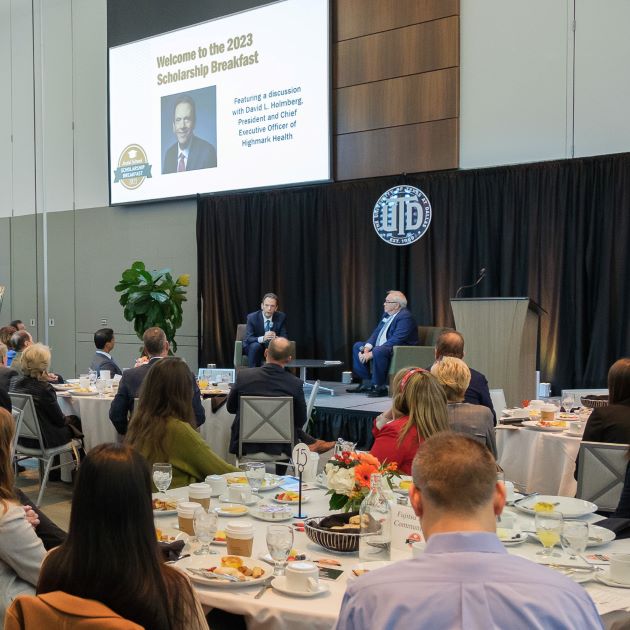Panelists at a recent seminar hosted by the Naveen Jindal School of Management took on the challenging topic of how to rein in spiraling healthcare costs. The solution? Turn the industry on its head.

Dr. Britt Berrett, director of the Center for Healthcare Leadership and Management, moderated the seminar, held in the Davidson Auditorium Oct. 24. More than 110 students, staff, faculty and healthcare professionals attended the presentation, “Can Payment Reform Control Rising Healthcare Costs?”

Dr. Forney Fleming, director of the MS in Healthcare Leadership and Management program at the Jindal School, framed the discussion by providing the audience an overview of healthcare system finances. His analysis revealed a stark trend in the U.S. healthcare industry of continuously rising costs over the past five decades with a simultaneous decline in quality.
“It is not a sustainable situation,” he said. “… [P]oor care coordination, an aging American population, regulatory complexity and monopolistic pricing power of providers” are some of the major factors contributing to it.

Next up was Dr. John McCracken, director of the Alliance for Physician Leadership at the Jindal School, who guided the audience through an explanation of the difficulties in reforming healthcare payment models. The medical service delivery model, he said, is currently in transition from a fee-for-service model to one that is more team-based. In the team-based model, hospitals, physicians and post-discharge services such as home-care providers coordinate patient care and divide the payments. The main idea behind this model is that better coordination across the continuum of care will result in much lower costs for consumers.
What is preventing a smooth transition, McCracken said, is a resistance to change on the part of physicians and hospitals due to a perception that their autonomy and position at the top of the healthcare hierarchy will be eroded. Not only that, but they will necessarily become more accountable for patient outcomes and have to take on a higher level of financial risk.
“These are the big obstacles to payment reform, and this is where the pushback is coming from,” he said.

Don Taylor, director of Southwestern Health Resources integration at UT Southwestern Medical Center, pointed to some new concepts and models that could offer a way out of the challenges that Fleming and McCracken described. At the top of his list were clinical integrated networks and accountable care organizations. These could turn the healthcare industry on its head by changing the focus from volume-based payments that encourage greater consumption — and spending — to collaborative, patient-centered, value-based care in which improving quality while reducing costs is the focus.
“Are CINs the answer?” Taylor asked. “I don’t think they’re the final model, but I do believe they’re a great step toward that.”
David Link (MBA’07, MA’09, MS’12), human resources manager for Regal Research and Manufacturing Co., attended the seminar and found it to be of “extreme value” for healthcare professionals looking for context related to healthcare’s past, present and future.
“Not only did it provide the trends that leaders in healthcare can most certainly benefit from knowing, it provided business leaders with the tools to better plan for future healthcare cost impact by having a clear understanding of the challenges and trends,” he said. “Don Taylor’s input was of particular interest, giving great insight into what innovations are being planned and implemented right now by forward-thinking healthcare organizations.”
Audio from the seminar will be available in a series of upcoming episodes of The Business of Healthcare Podcast. In it, the panelists will answer some of the questions audience members posed.





